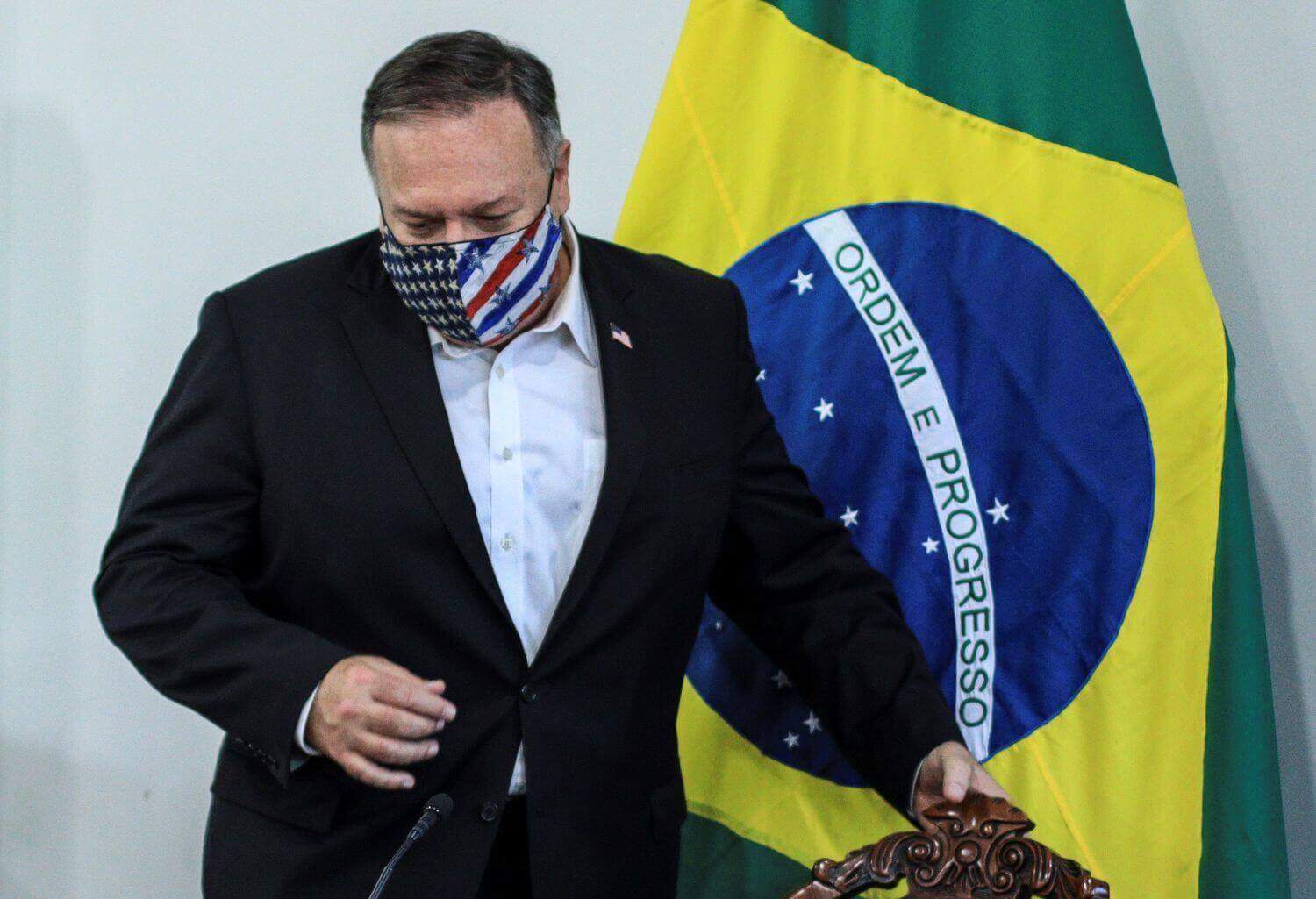At a virtual US-Brazil diplomatic summit, US Secretary of State Mike Pompeo warned that both countries must reduce their dependence on Chinese imports due to the “enormous risk” to national security posed by interactions with China.
He said, “To the extent we can find ways that we can increase the trade between our two countries, we can ... decrease each of our two nations’ dependence for critical items” coming from China,” adding, “Each of our two peoples will be more secure, and each of our two nations will be far more prosperous, whether that’s two or five or 10 years from now.”
Brazilian President Jair Bolsonaro is keen to follow suit and join hands with his right-wing partner Donald Trump; however, given that China is Brazil’s largest trading partner and that the country’s soy and iron ore exports are particularly dependent on China, he is somewhat reticent to follow through with such calls to action.
In fact, Bolsonaro has not yet made a decision on whether to allow Chinese telecoms giant Huawei to develop and access the country’s 5G network. In the recent past, US pressure has pushed allies such as the United Kingdom (UK), France, Australia, and Canada to back out from 5G deals with Huawei.
The Brazilian President has, however, sought to reduce trade restrictions with the US and looked to incentivize American investment. At the summit, he said, “In the last year and a half, together with President Trump, we have elevated Brazil-U.S. relations to its best moment ever, and opened a new chapter in the relationship between the two largest economies and democracies in the hemisphere.”
US goods and services trade with Brazil was totaled at $105 billion in 2019. Earlier this year, the US Federal Reserved established temporary US dollar liquidity arrangements to provide US currency to countries such as Brazil and Mexico in order to “lessen strains in global US dollar funding markets”.
In recent times, the US has already made significant overtures to expand its ties with Colombia, Mexico, Suriname, Guyana, and the Dominican Republic.
In fact, in August, the US National Security Council unveiled its Western Hemisphere Strategic Framework. In it, the US mentions how it is seeking to expand its “deep geographic, economic, and cultural” ties in its “neighborhood”. Simultaneously it seeks to counter “malign political influence” and “economic aggression” of China, which it says has increased its “state-driven trade, investment, diplomatic, technology, media, security, and health outreach” in the Latin American and Caribbean region.
Chinese foreign ministry spokesperson Zhao Lijian responded to Pompeo’s comments by reiterating that American politicians are attempting to “sow discord”.
China has sought to build counter-alliances in the region. Thus far, in Latin America, China has already signed Belt and Road Initiative (BRI) agreements with Uruguay, Panamá, Chile, and Perú. Furthermore, Argentinian President Alberto Fernández has expressed his desire to join the initiative as well.
China also recently renewed its currency swap agreement with Argentina, which the central banks of both countries use to exchange upwards of $18.5billion in yen and pesos. This agreement gives Argentina the opportunity to increase its financial reserves without accruing new external debts.
Argentina’s exports to China increased by 50.6% over the past year and the East Asian country has now emerged as its largest trading partner. This relationship was first bolstered under former president Mauricio Macri, who ruled from 2015 to 2019, and has continued under the current leader as well.
As the US and China simultaneously aim to expand their respective spheres of influence, countries across Latin America and the Caribbean will have to weigh up the costs and benefits of entering into agreements with either country. In an increasingly polarized world, it has become increasingly more difficult to conduct diplomatic and trade negotiations without picking a side in this new ‘Cold War’.
Pompeo Calls on US and Brazil to Reduce Dependence on China to Protect National Security
While Brazilian President Jair Bolsonaro is keen to join hands with the US, he remains somewhat reluctant due to the fact that China is Brazil’s largest trading partner.
October 21, 2020

IMAGE SOURCE: GILDO JUNIOR / EFEUS Secretary of State Mike Pompeo
